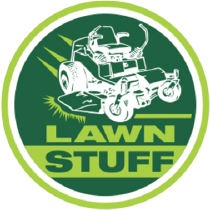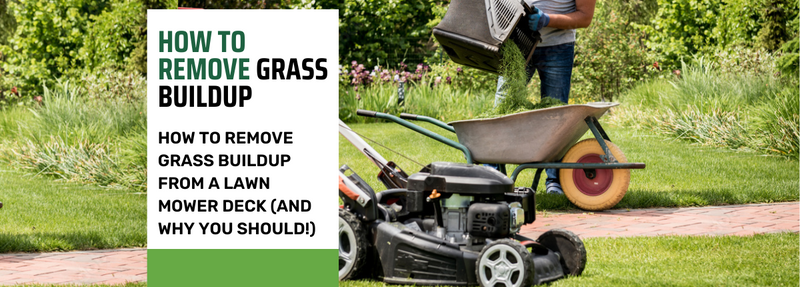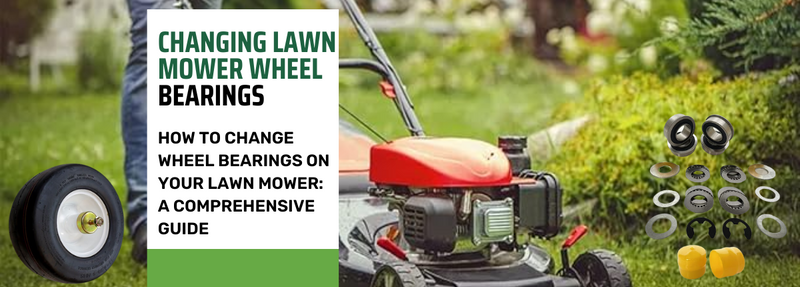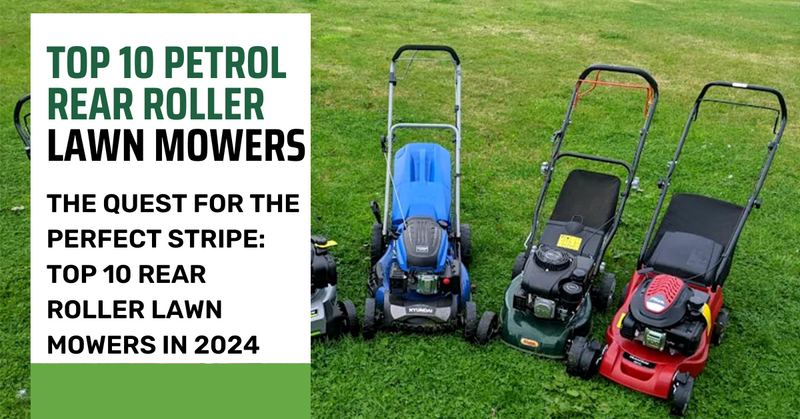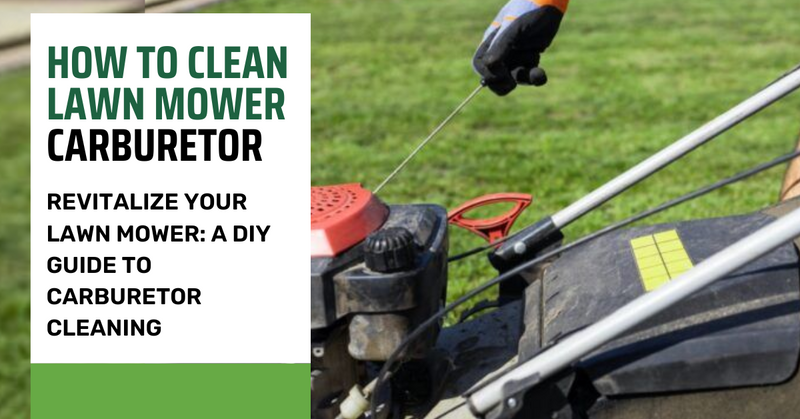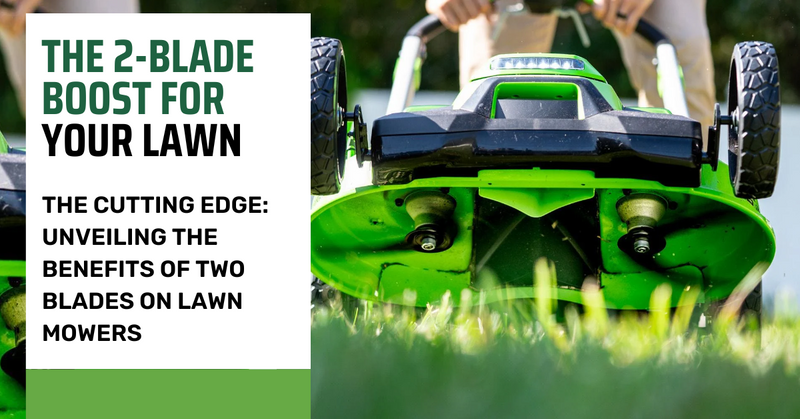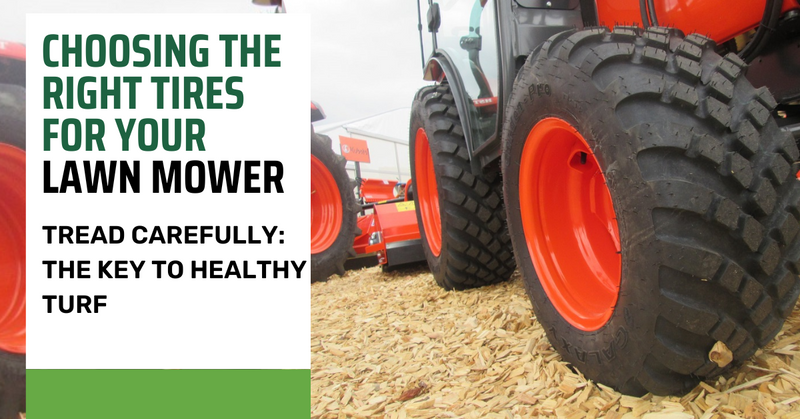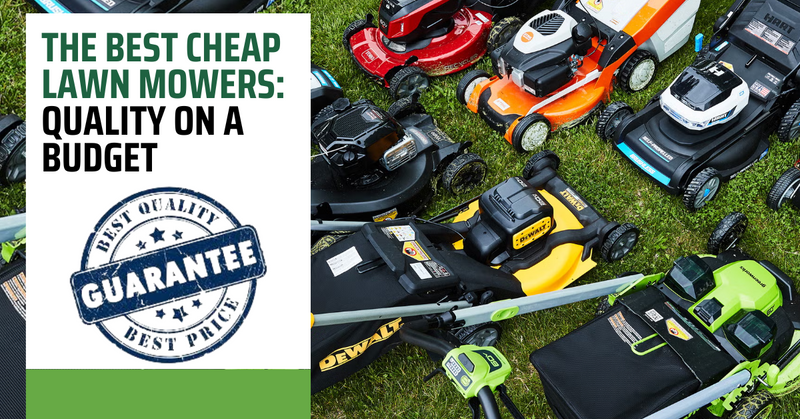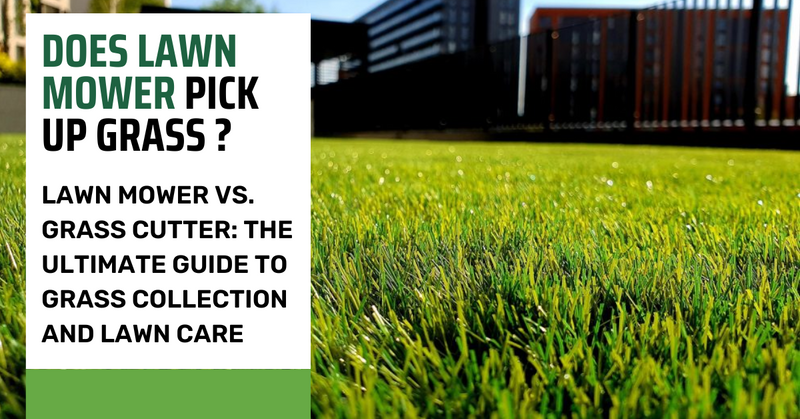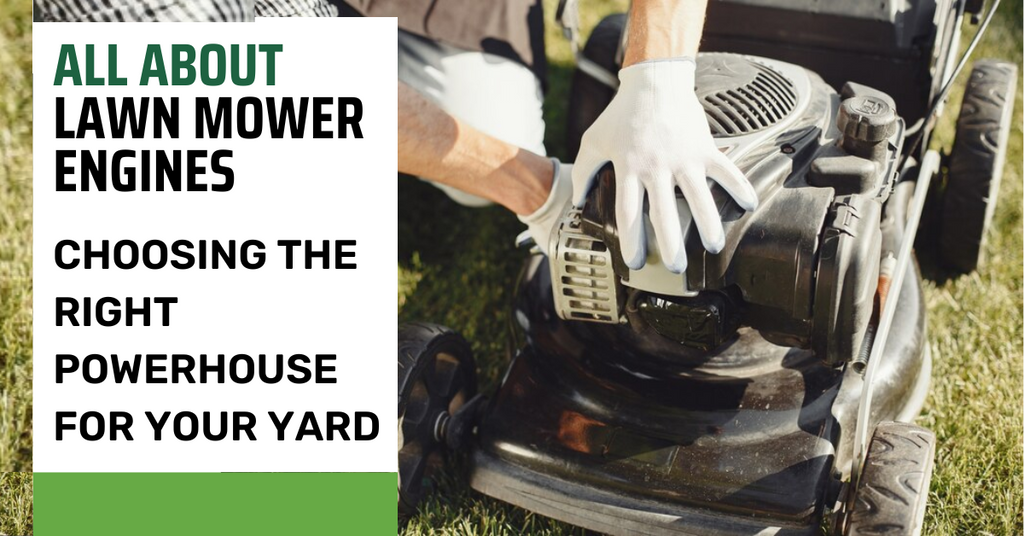

The Ultimate Guide to Lawn Mower Engines: Choosing the Right Powerhouse for Your Yard
A well-manicured lawn is the pride of many homeowners. But behind every perfect cut is the workhorse of your lawn care routine – the lawn mower engine. Understanding the different engine types, power ratings, and maintenance is crucial for choosing the best fit for your needs and keeping your mower running smoothly. In this ultimate guide, we'll break down everything you need to know about lawn mower engines.
Understanding Types of Lawn Mower Engines:
Lawn mower engines come in various types, each with its own set of features and benefits. The two primary types are:
- Two-stroke Engines: Simpler and lighter, usually found on smaller mowers. They require mixing oil with the gas.
- Four-stroke Engines: More powerful and efficient, ideal for larger lawns. No oil and fuel mixing is needed.
- Electric-Powered Engines: Electric-powered engines are gaining popularity due to their eco-friendliness and quieter operation. These engines can be further divided into corded and cordless variants. Corded electric mowers need to be plugged into a power source, while cordless models are powered by rechargeable batteries, offering greater mobility and convenience.
- Corded: Great for smaller yards, they're limited by cord length.
- Battery-powered: More versatile, but runtime depends on the battery.
Understanding Horsepower (HP) & Cubic Centimeters (CC)
- Horsepower (HP): Measures the engine's power. Higher HP is typically found in mowers designed for larger properties or tougher grass.
- Cubic Centimeters (CC): Refers to the engine's size. Larger CCs often (but not always) correlate with a boost in power.
Key Factors to Consider When Choosing a Lawn Mower Engine
- Lawn Size: Small yards can get by with lower-powered engines, while bigger yards demand more HP.
- Terrain: Push mowers with more power are better for hills and slopes.
- Grass Type: Tougher grasses need a potent engine to avoid bogging down.
- Budget: Gas engines are generally cheaper upfront, but electric saves on long-term fuel costs.
- Environmental Impact: Choose electric mowers for the most eco-friendly option.
Lawn Mower Engine Maintenance
- Oil Changes: Follow the manufacturer's recommended schedule.
- Air Filter Cleaning/Replacement: Dirty filters lead to inefficient running.
- Spark Plug Checks: Replace as needed for easy starting.
- Fuel: Use fresh gasoline or fuel stabilizer for long-term storage.
- Sharpening Blades: Ensures a clean cut and less engine strain.
Popular Lawn Mower Engine Brands
- Briggs & Stratton: A trusted name known for reliability and power.
- Honda: Renowned for smooth operation and excellent fuel efficiency.
- Kohler: Offers a range of engines for different lawn care needs.
- Predator: A budget-friendly option popular for DIY mower builds.
What is the most powerful Briggs and Stratton engine?
Briggs & Stratton is synonymous with reliable and powerful lawn care equipment. But for those who demand the ultimate in raw power, their top-of-the-line engines set the standard. In this blog post, we'll unveil the most powerful Briggs & Stratton engine, explore its features, and discuss the applications where it truly shines.
The Champion: Briggs & Stratton Vanguard Big Block V-Twin
The undisputed powerhouse in the Briggs & Stratton lineup is the Vanguard Big Block V-Twin series. These engines boast:
- Massive Displacement: Available in 895cc or 993cc displacements for extreme torque.
- V-Twin Design: Provides smoother operation and power delivery compared to single-cylinder engines.
- Commercial-Grade Construction: Built for heavy-duty use and extended longevity.
- Power Ratings: Ranges from 25 to 37 horsepower for tackling the toughest jobs.
Features of the Vanguard Big Block V-Twin
- Overhead Valve (OHV) Technology: Ensures cooler running, better fuel efficiency, and extended engine life.
- Advanced Debris Management: Optimal airflow design keeps it running even in dirty conditions.
- Dura-Bore™ Cast Iron Sleeve: Robust construction for maximum durability.
- Electronic Fuel Management (EFM) or Electronic Throttle Control (ETC): Depending on model, for optimized fuel usage and smoother operation.
Where the Vanguard Big Block V-Twin Excels
This engine isn't for your average backyard. It's ideal for:
- Large Properties: Effortlessly powers zero-turn mowers across expansive lawns.
- Commercial Landscaping: Handles the rigorous demands of professional use.
- Heavy-Duty Applications: Can power generators, wood chippers, and other demanding equipment.
What is the life expectancy of a lawn mower engine?
Type of Engine:
- Residential-grade two-stroke: Typically the shortest lifespan, around 8-10 years with proper care.
- Residential-grade four-stroke: More robust, often lasting 10-15 years with proper maintenance.
- Commercial-grade engines: Designed for heavy use, potentially lasting 15-20+ years when well-maintained.
Hours of Use:
Engines are often measured in hours of lifespan rather than years alone. Here's a rough estimate:
- Residential-grade: Around 500-1000 hours depending on quality
- Commercial-grade: 1500-3000+ hours
Maintenance:
The best way to maximize the life of any lawnmower engine is with meticulous maintenance:
- Regular oil changes: Follow the manufacturer's recommendations.
- Clean air filters: A clogged filter makes the engine work harder.
- Fresh fuel: Use fresh gasoline, or fuel stabilizer for extended storage.
- Spark plugs: Check and replace as needed.
- Blade sharpening: A sharp blade puts less stress on the engine.
Other Factors:
- Brand and model: Some engines are just built with higher quality components.
- Operating conditions: Extreme heat, dusty environments, and rough terrain can shorten engine life.
With proper care, it's definitely possible to get well over a decade out of a lawn mower engine. However, issues can still arise, and sometimes it's just more cost-effective to replace the mower as it ages.
What type of engine is in a lawn mower?
| Engine Type | Description | Typical Use | Image |
|---|---|---|---|
| Two-stroke Gas | Simpler, lighter construction; requires oil mixed with gas | Smaller push mowers, trimmers | |
| Four-stroke Gas | More powerful, fuel-efficient than two-stroke | Most push mowers, some riding mowers | |
| Corded Electric | Quieter, less maintenance, eco-friendly | Smaller lawns, limited by cord length | |
| Battery-powered Electric | Cordless, good for small to medium yards | Push mowers | |
| Propane | Alternative fuel, cleaner emissions than gas | Residential or light commercial | |
| Diesel | Powerful, very fuel-efficient, long lifespan | Large commercial mowers, tractors | |
| Vertical Shaft | Common, found in riding mowers and some push mowers | Varied applications | |
| Horizontal Shaft | Often used in commercial or zero-turn mowers | Applications needing more power | |
| Overhead Valve (OHV) | Design that promotes cooler operation, better efficiency | Used in both gas and electric engines | |
| Overhead Cam (OHC) | More complex design, can offer improved performance | Found in some higher-end engines |
